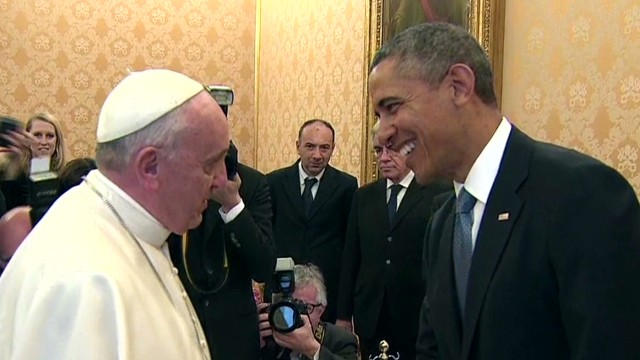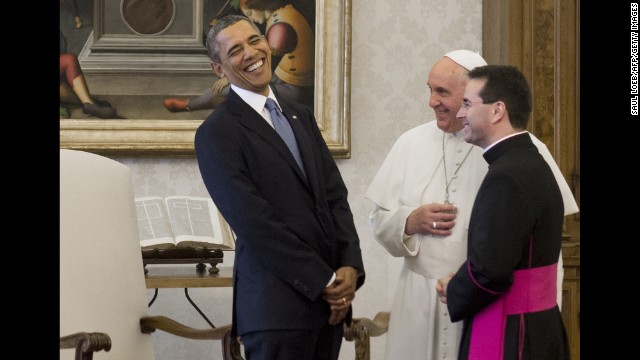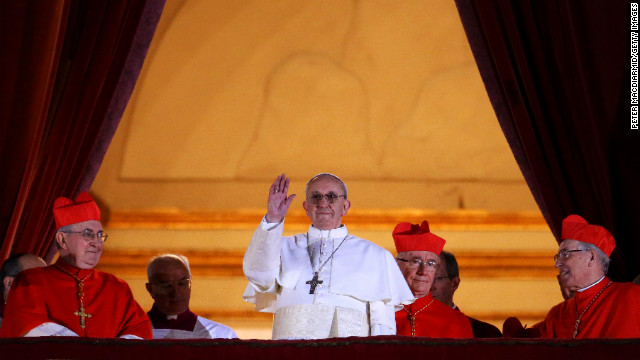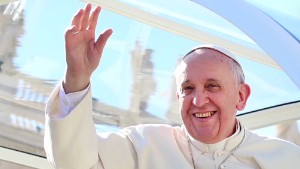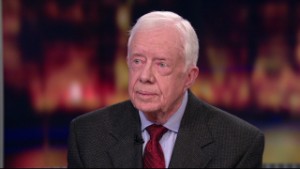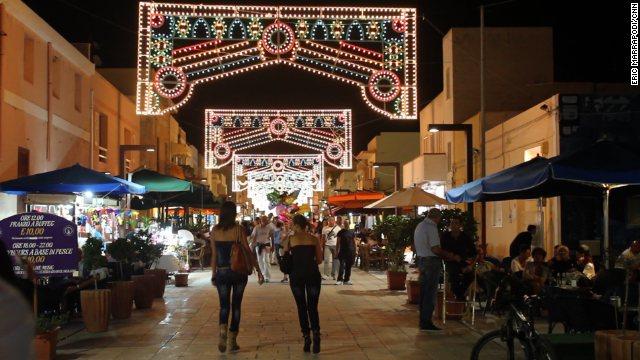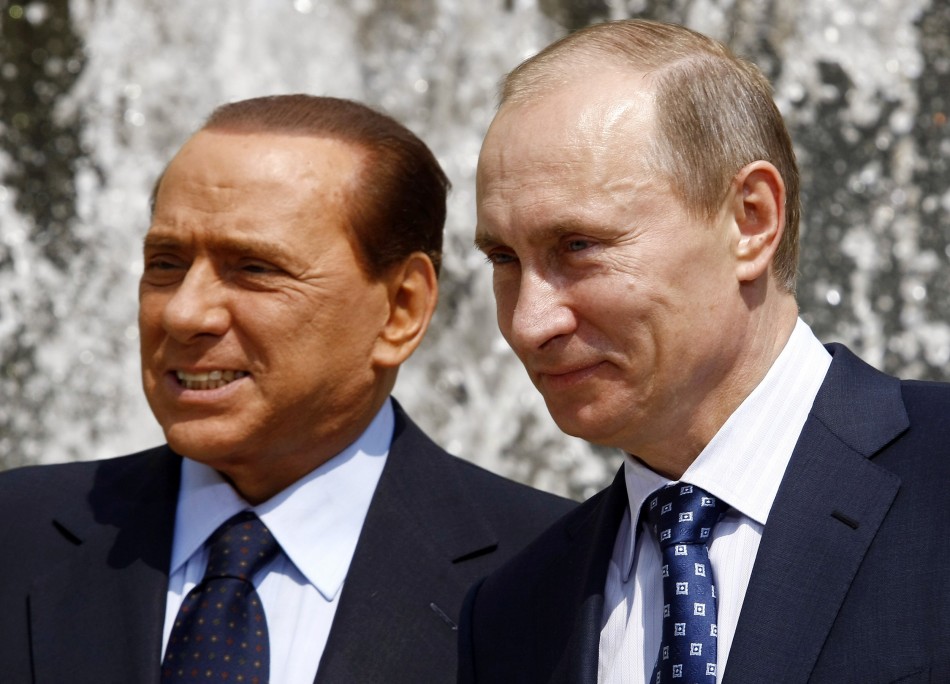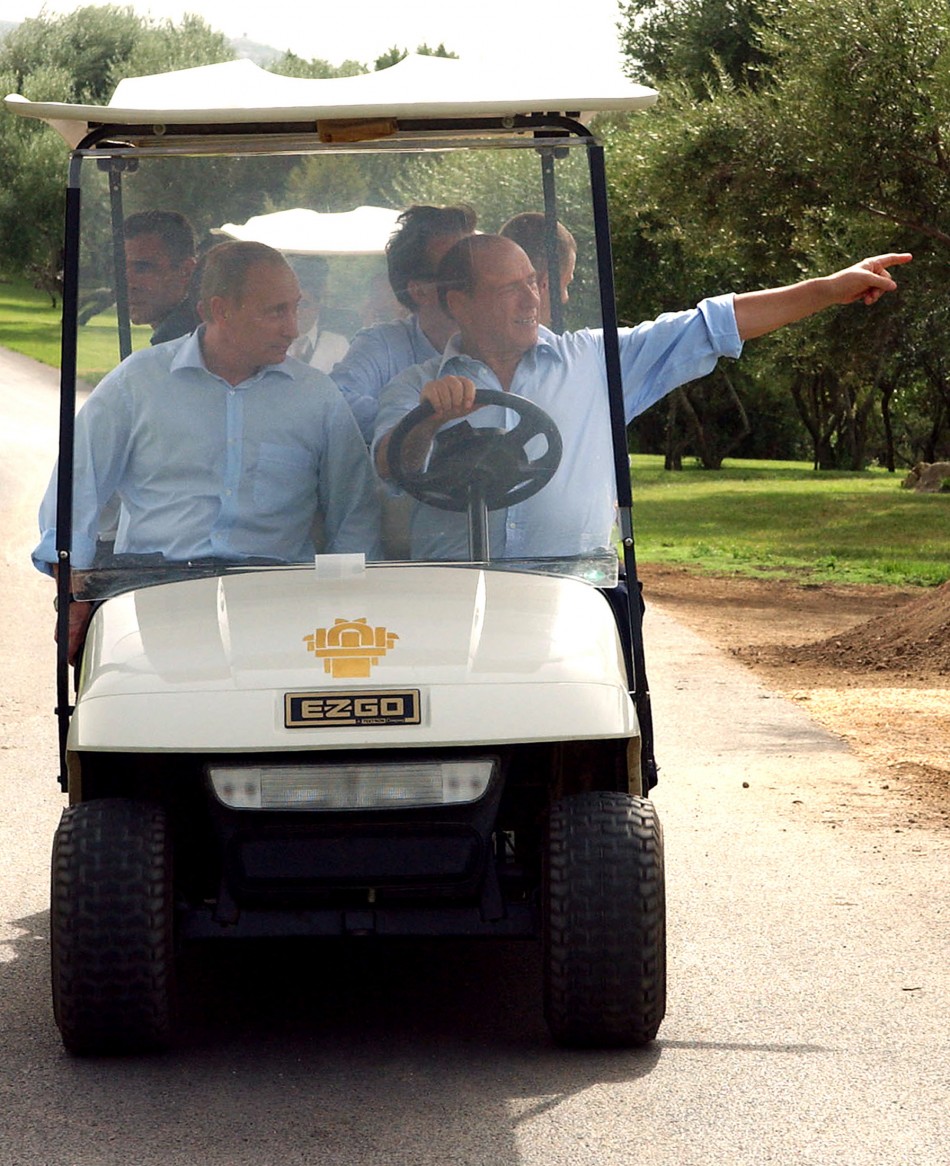
Kosovo? Hong Kong? Abkhazia? Few Precedents for Russia's Crimea Takeover
- By Oleg Sukhov
- Mar. 26 2014
Artur Bainozarov / ReutersMuscovites
walking past a mural showing a map of the Crimean peninsula in the
colors of Russia’s national flag and the words “Crimea and Russia.”
Correction appended
Russia's takeover of Crimea is the first acquisition of foreign
territory by a major power in more than a decade, and some observers,
lawyers and scholars say it is difficult to justify the move based
on past precedents.
The Kremlin has described the joining of the strategic region
to Russia earlier this month as a legitimate agreement between two
independent governments following Crimea's rapid declaration
of independence amid a political crisis in Ukraine. Russian leaders have
emphasized that the region's splitting from Ukraine and the referendum
in which Crimean voters chose to join Russia were actions expressly
in line with international law.
Western powers have vehemently disagreed. They maintain that
the annexation was a flagrant violation of international legal
standards, while some observers have called the action one of the most
significant challenges to the current international order since the end
of the Cold War.
Alexei Malashenko, an analyst at the Moscow Carnegie Center, said
the argument over the legality of the move was an empty one, since
international law can be interpreted and manipulated in different ways
and loopholes can always be found.
"International law is just paper that has lost its value long ago," Malashenko said by phone.
Territorial annexations have become increasingly rare since the end
of World War II as more traditional imperialist systems of government
have faded, and most of those takeovers have not been recognized by the
international community.
For Russia, the takeover of Crimea is the first acquisition since
the period of the late 1940s to early 1950s after World War II, when
the Soviet Union acquired part of Finland, the Baltic states, part
of East Prussia, Western Belarus, Western Ukraine, Moldova, South
Sakhalin and the Kuril Islands. The South Kurils are now also claimed
by Japan, which calls them the Northern Territories.
Many enclaves around the world have declared independence in recent
decades, but often have not been formally joined to other countries.
For example, Russia recognized the independence of Abkhazia and South
Ossetia from Georgia following a brief war between Georgia and Russia
in 2008, and Russian troops continue to occupy the territories, but
the Kremlin has not moved to make the disputed republics part of the
Russian Federation.
Perhaps due in part to Crimea's military importance for Russia's
Black Sea Fleet and its historical ties to Russia, the Kremlin went
a step further with the peninsula. According to Dmitry Oreshkin, head
of the Merkator research group, the decision on whether to occupy
a territory or to annex it depends on the "extent of the elite's
craziness."
Kosovo
Russia has pointed to one past international case in particular
in arguing that the West is being hypocritical in its criticism of the
takeover of Crimea: Kosovo's declaration of independence from Serbia
in 2008.
The Kremlin, which strongly opposed Kosovo's split from its ally
Serbia, has cited the International Court of Justice's 2010 ruling that
Kosovo's unilateral declaration of independence without Serbia's
agreement complied with international law.
But many differences exist between the situations in Kosovo and Crimea, observers say.
Unlike in Crimea, it took Kosovo many years to declare independence,
Malashenko said. In Crimea, the parliament voted in late February
to hold a referendum on the peninsula's status on May 25, then later
moved the date to March 16.
"This is not the way it is done," Malashenko said, adding that a year
ago nobody had even considered the issue of Crimea splitting
from Ukraine.
Kosovo was also the site of a military conflict and ethnic cleansing,
whereas Crimea has seen no major violence for decades, he said.
The Russian government has cited supposed threats by "bandits"
and Ukrainian ultranationalists as justification for authorizing Russian
troops to enter Ukraine to defend Russian citizens. But there have been
virtually no reports of violence against Russians in Crimea.
Another difference between Kosovo and Crimea, Oreshkin said, is that Kosovo, unlike Crimea, was not annexed to another country.
Annexation, or Legitimate Treaty?
The Kremlin has argued that Crimea's joining Russia was the result
of a legitimate agreement between two independent states, with
supporters comparing it to the handover of Hong Kong from Britain
to China in 1997 under a bilateral agreement.
Another comparison made by supporters of the Crimean referendum is
that with Saarland, which had been run by France under a League
of Nations mandate since 1920 and held a referendum to join Germany
in 1935.
Curtis Doebbler, a U.S. human rights lawyer, agreed with the Russian government's position.
"An annexation of territory infers an act that is done against
the will of the people of the territory concerned," he said by e-mail.
"When the people of a territory that is part of one state express
the free and uncoerced will to join another state, it is more correct
to speak of the exercise of self-determination."
He also argued that the fact that Crimea's decision to declare
independence was "encouraged and protected" by Russia did not discredit
people's expression of self-determination.
Lorand Bartels, a lecturer in international law at the University
of Cambridge, rejected Russia's arguments, however. He said there was no
right of secession from a parent state except when the people are under
risk of serious threat of harm, which was not the case in Crimea.
"As to the 'treaty,' this depends on there having been a state
capable of concluding such a treaty with Russia," he said by e-mail.
"There are various reasons why there was not."
Bartels said that if there were a right of self-determination
exercisable by secession in this case, the Crimean referendum was not
a valid exercise of that right due to "procedural irregularities."
Several deputies of the Crimean parliament have said that they were
absent at the parliament session in late February that approved
the referendum but had been recorded as present, and that there had been
no quorum at the meeting.
Critics of the Crimean referendum have also argued that few
independent observers were present and have accused the authorities
of cracking down on independent journalists, allowing Russian citizens
to vote and falsifying turnout numbers. Russian and Crimean authorities
say the vote was legitimate.
Bartels also argued that the requisite "independence" of Crimea was lacking thanks to Russian control over the territory.
"The purported independence of the state was tainted by at least
a threat of use of force, and most likely use of force itself, making it
illegal to recognize the state, and rendering the statehood of Crimea
a nullity," Bartels said.
Opponents of the current Crimean government have argued that its
decisions were illegitimate because it was allegedly appointed under
duress when armed men without insignia seized the parliament building
in late February.
Bartels argued that Russia's takeover of Crimea was illegitimate also
because the peninsula's independence from Ukraine was not recognized
by any other state, and "hence there was no entity capable of concluding
a treaty with Russia."
Nazi Comparisons
The most controversial comparisons made regarding the joining
of Crimea to Russia have been to territorial acquisitions by Nazi
Germany ahead of World War II.
One such comparison has been to Germany's 1938 takeover
of Sudetenland, a German-speaking region of Czechoslovakia. Just as
in Russia's takeover of Crimea, Germany said it sought to protect local
residents from abuse by the government.
Another case that has been called similar is Germany's annexation
of Austria in 1938, called the "Anschluss." Malashenko, of the Carnegie
Moscow Center, said this was different from Crimea, however, because
Austria was an independent state rather than part of another country.
During the Anschluss, Germany forced Austria to install pro-Nazi
politician Arthur Seyss-Inquart as chancellor, who then invited German
troops to invade the country. Critics have compared the move
to pro-Russian forces' takeover of the Crimean parliament in late
February, installment of Sergei Aksyonov as prime minister
and subsequent invasion of Crimea by Russian troops.
German troops were met by cheering crowds in Austria — a move that
some said paralleled the friendly reception given to Russian forces
in Crimea.
Following the occupation of Austria by German troops, a referendum
was held in which 99.7 percent voted in favor of annexation, according
to official results. A similar landslide of 96.77 percent was
the official result in the Crimea referendum on March 16.
The Anschluss of Austria by Germany was recognized by the
international community, while Russia's takeover of Crimea was not, but
both referendums were criticized by foreigners for alleged violations.
When justifying the Anschluss, Germany argued that Austria's
population consisted of ethnic Germans, and the ethnic argument was also
a major one for the Kremlin, which has emphasized that most of Crimea's
population, or about 58 percent, are ethnic Russians.
The issue of shared ethnicity has also been raised in other arguments
over territory. India invaded the Portuguese colony of Goa and annexed
it after a brief military conflict in 1961, noting that the region,
which had been ruled by Portugal since the 16th century, is populated
by an Indo-Aryan people. Portugal initially called the move an illegal
annexation, but over a decade later recognized Goa as part of India.
Shared History
Another argument frequently used by Russia in justifying its seizing
of Crimea is that the region had been part of Russia before 1954,
and that its transfer to Ukraine was a pure formality since both Russia
and Ukraine were parts of the Soviet Union at the time.
Iraqi President Saddam Hussein used a similar justification when he
invaded Kuwait in 1990, saying it had been part of Iraq during
the Ottoman period. After the invasion, a formally independent republic
was established in Kuwait and subsequently it was joined to Iraq.
The annexation was never recognized by the international community.
Israel has appealed to history in its territorial occupations, saying
that Palestine and parts of Lebanon, Syria and Jordan were parts of the
Jewish lands described in the Bible. Though most of the territories
occupied by Israel have not been formally integrated into the Jewish
state, the country brought some of them under its jurisdiction,
including Palestine's East Jerusalem in 1967 and Syria's Golan Heights
in 1981.
Viktor Nadeyin-Rayevsky, a research fellow at Moscow's Institute
of World Economy and International Relations, rejected any parallels
with Israel, saying that Israel's annexation of East Jerusalem and Golan
Heights had been declared illegitimate by the United Nations. He also
noted that Crimea was part of Russia in recent history, while he said
Israel's claims were "mythological."
Security considerations also played a role in Israel's takeovers
because the occupation and annexation of surrounding Arab lands "was
the only way for it to survive," Malashenko said.
Correction: An earlier version of this story incorrectly stated
that Abkhazia and South Ossetia split from Georgia in 2008. In fact,
they formally seceded from Georgia in the early 1990s, while in 2008
Russia recognized their independence.













